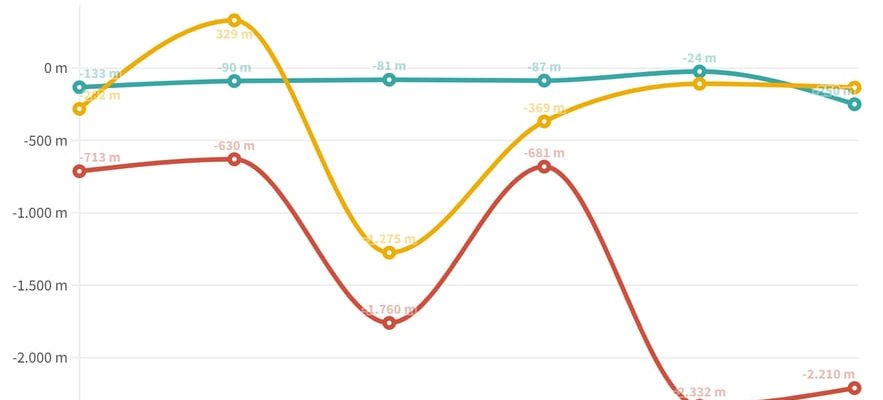Three members of the Attal government landed this Tuesday evening in New Caledonia. The trio, made up of the Minister of the Interior Gérald Darmanin, the Minister of Justice Eric Dupond-Moretti, and the Minister Delegate for Overseas Territories Marie Guévenoux, will begin their visit to the Pacific archipelago this Wednesday, February 22. South, hit hard by a nickel crisis.
And as usual, the program is dense. On the menu: partnerships, security and even development of the prison system.
A new penitentiary establishment
Friday, before heading to the south of the archipelago for the return of lawyers, the Minister of Justice will inaugurate the Koné detention center, opened last year on the west coast of “Grande Terre”. At the same time, Eric Dupond-Moretti should announce the construction of a new penitentiary establishment in the urban area of Nouméa where the current prison, Camp-Est, is criticized for its overcrowding and its conditions of detention. A “considerable investment of 500 million euros”, the High Commissioner of the Republic in New Caledonia, Louis Le Franc, rejoiced on Friday February 16 on Radio Rythme Bleu.
A new gendarmerie brigade, specializing in environmental attacks, should also soon see the light of day. On Thursday, Gérald Darmanin, who is on his sixth visit to the island in less than fifteen months, will go to Moindou for this purpose, where he will speak with elected officials and gendarmes. The minister should also sign “a protocol establishing participatory security, as part of the vigilant breeders system”.
The nickel crisis at the center of concerns
Announcements which should not, however, overshadow a file at the top of the concerns of local actors. That of the crisis in the nickel industry. New Caledonia is one of the territories that produces the most of this white gold in the world. But for several months, the sector has suffered a series of setbacks.
Latest, Monday February 12. After more than a decade of exploiting New Caledonian nickel, Swiss mining giant Glencore has announced that it will pause production at its Koniambo Nickel SAS (KNS) metallurgical processing plant for a period of six months. Cataclysm for this local economy very dependent on the metallurgical sector. Some 400 subcontractors should see their contracts suspended or terminated on February 29.
“The northern factory is an economic engine for an entire region, it is in its DNA. In 2023 alone, 250 million euros have been injected into the economy. And these are thousands of families, a large part of which are from northern communities,” explains Alexandre Rousseau, vice-president of corporate social responsibility (CSR) at KNS. Reason why the executive places the file at the top of the priorities of the visit.
The Ministries of the Interior, Justice and Overseas Territories begin a three-day visit to New Caledonia on Wednesday, February 21, where the nickel metallurgy industry is in bad shape.
© / L’Express / General Inspectorate of Finance
Especially since KNS is not the only factory whose future is uncertain. In the south of the archipelago, Prony Resources is also looking for a buyer. A state rescue plan provides for a restructuring of subcontracting and its 2,000 jobs. But is conditional on the signing of a “nickel pact” supposed to perpetuate the future of the sector.
Result of a visit last November, where Gérald Darmanin and Bruno Le Maire tried to provide solutions to a sector which suffers from poor yields and strong foreign competition. The State hopes to see this political agreement concluded by the end of the month despite the divergent visions of separatists and “loyalists” on the question of exports of raw ore.
A political visit in spite of itself
It must be said that between the two camps, there are many bones of contention. The self-determination referendum of December 2021 marked the end of discussions between the State and independence parties who had boycotted the election. Last November, thanks to local incentives, the dialogue had resumed but the independence parties had little taste for the draft constitutional law, presented by the tenant of Beauvau to the council of ministers on January 29. And they indicated on Tuesday that they were opposed to a text aimed at expanding the electoral body currently open only to natives and residents who arrived before 1998.
Jean-Pierre Djaïwé, the spokesperson for the Kanak Liberation Party (Palika) in the Congress of New Caledonia, notably indicated to the press that the text was going “in the direction of non-independenceists”, which could, according to him, hinder the conclusion of an agreement between local actors. Thus, although he assured that this visit would “not have the main aim of talking about institutions”, Gérald Darmanin could be questioned on the reform of the electoral body for the provincial elections, which constitutes a major election in this territory where the provinces have broad powers.
Heard by the Senate Law Committee last Tuesday, the Minister of the Interior assured that the principle of a duration of residence fixed at ten years had been adopted by all parties. Assertions brushed aside by the Caledonian Union, the main component of the Kanak and Socialist National Liberation Front (FLNKS). “At no time have we given any approval,” corrected the independence party, little appreciating that “the French government is interfering in the Caledonian issue while the Caledonians are discussing to find a solution for the future of the country”. In such a climate, the tenant of Beauvau dances on a volcano.
